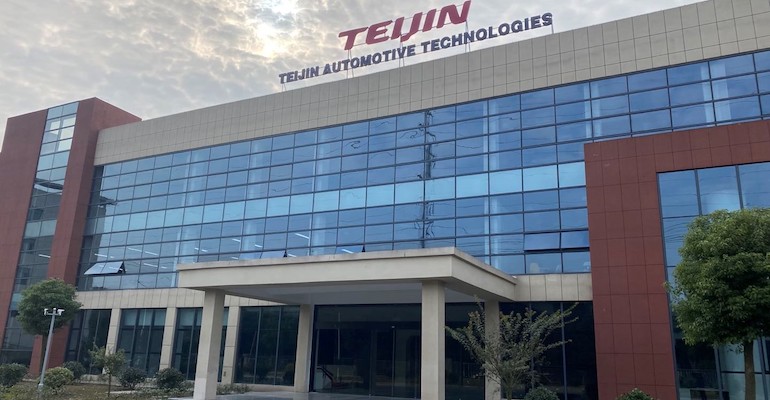Soaring EV sales — they are up 169% in China year on year — are driving demand for composites.
February 15, 2022

China is the world’s largest market for electric vehicles (EVs), having recorded sales of close to three million units in 2021, a whopping 169% higher than 2020. EV sales account for close to 15% of overall sales.
The Chinese government has offered generous subsidies to promote EV adoption and is targeting a 20% penetration rate by 2025. Swiss bank UBS, meanwhile, forecasts that three in five new cars may be electrically driven by 2030. It comes as no surprise, then, that materials suppliers are relishing the prospects for shipping composites and other plastic-based solutions to mainland OEMs, including multinational automakers.
One materials company expanding its core presence in China is Japan’s Teijin Automotive Technologies. The Teijin Group’s automotive composites business recently announced that it had commenced commercial operation of a new composites manufacturing facility in the Wujin National Hi-Tech Industrial Zone in Changzhou, Jiangsu Province, China. The new facility boasts 39,000 square meters of work area. The company simultaneously announced that it is constructing a third plant in China, based in the Technological Development Zone of the Tiexi District in Shenyang, Liaoning Province. It expects to begin operating this 13,000-square-meter plant in the summer of 2023.
Teijin Automotive Technologies selected the Changzhou and Shenyang areas for its new plants because of their close proximity to the production facilities of several major European, US, and Chinese automakers. Both plants will help to meet growing demand for composite components stoked by the growth of the EV market in China. The two plants will significantly boost the company’s ability to supply lightweight, safe, energy-efficient, and durable composite components, which are indispensable for environmentally friendly vehicles.
With the second plant’s startup and the third plant’s construction, Teijin Automotive Technologies is actively strengthening its position as a global leader in automotive composite applications. Concurrently, the company is developing applications for advanced composite materials and processes to support its automotive customers’ challenges of achieving ambitious weight and CO2 reduction targets, and lower EV production costs. Teijin is targeting annual sales of $2 billion for its automotive composite products business by 2030.
Teijin Automotive Technologies has been manufacturing automotive composites and glass-fiber sheet molding compounds (GF-SMC) in China since 2015, mainly for EV battery covers, battery shields, underbody shields, structural inner panels, and exterior body panels.
About the Author(s)
You May Also Like




